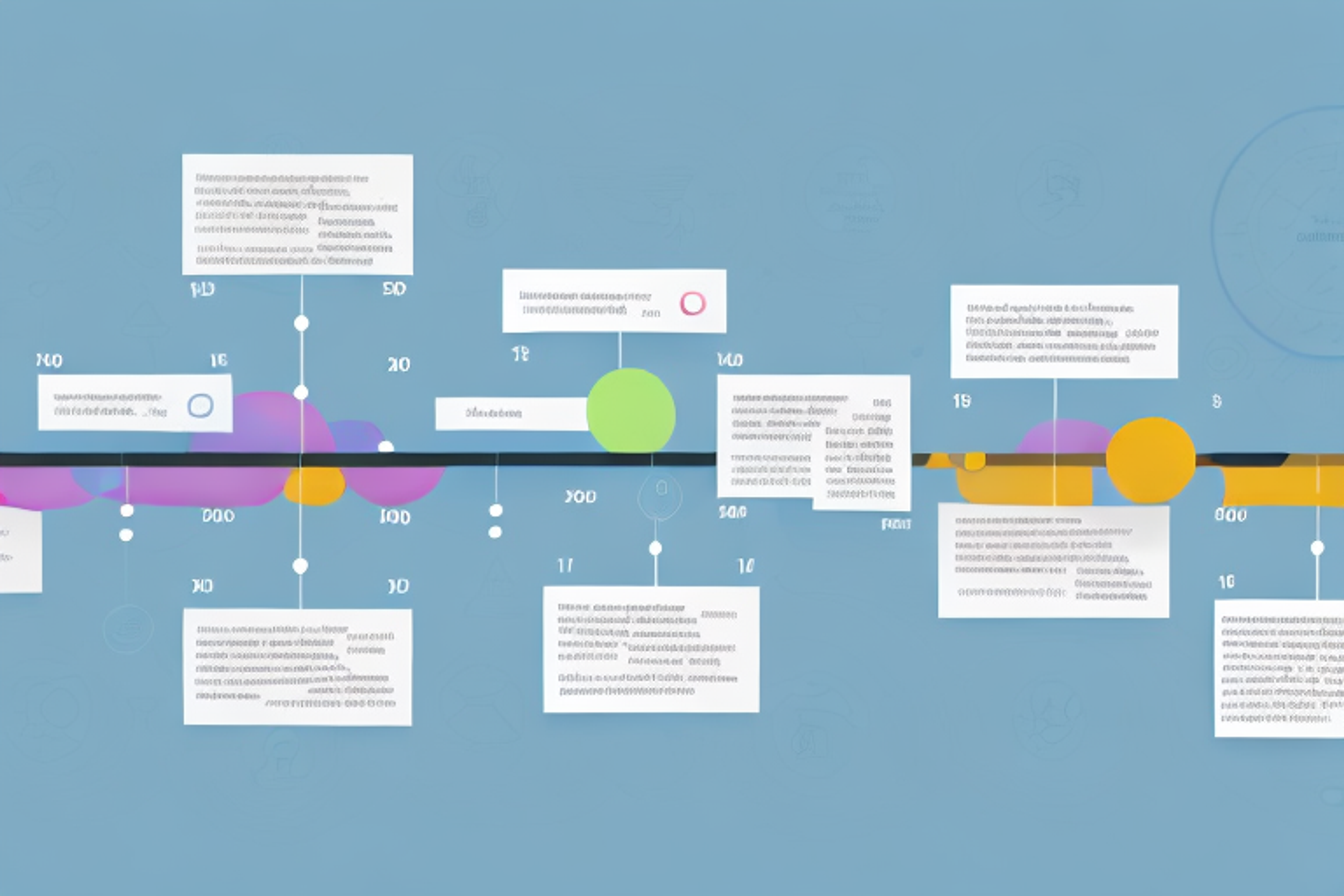
Free Event

Featuring Sujoy Kumar D.
Combinatorics for the GMAT & GRE - Part 1
Starting Saturday, March 29
1:30 AM UTC · 90 minutes

Featuring Sujoy Kumar D.
Table of Contents
If you are preparing for the Graduate Management Admission Test (GMAT), practice tests are an essential part of your preparation. These tests give you a chance to experience the actual exam, evaluate your skills, and identify areas you need to improve. However, taking the test alone is not enough. It would be best if you review your performance to extract the maximum possible benefit from the practice test. In this article, we will cover the step-by-step process of how to review your GMAT practice tests to maximize your learning opportunities and improve your score.
Understanding the Purpose of GMAT Practice Tests
Before diving into the details of how to review your practice test, it's essential to understand why practice tests are vital in GMAT preparation. GMAT practice tests simulate the actual exam, giving you an experience similar to the actual test. The practice test helps you to evaluate your skills and identify areas you need to work on before the actual exam. Furthermore, taking practice tests improves your time management skills, helps you get familiar with the exam structure and format, and builds your confidence levels. Thus, to achieve an excellent score, taking practice tests is critical.
Another benefit of taking GMAT practice tests is that they help you to develop a test-taking strategy. By taking multiple practice tests, you can experiment with different approaches and identify the one that works best for you. For instance, you may discover that you perform better when you tackle the easier questions first or when you skip the difficult questions and come back to them later. Developing a test-taking strategy can significantly improve your performance on the actual exam.
Additionally, GMAT practice tests can help you to manage test anxiety. Many test-takers experience anxiety and stress during the exam, which can negatively impact their performance. By taking practice tests, you can get used to the exam environment and reduce your anxiety levels. You can also practice relaxation techniques such as deep breathing or visualization to help you stay calm during the actual exam.
The Importance of Reviewing GMAT Practice Tests
After taking your GMAT practice test, you might be tempted to skip the review process. However, reviewing your performance in the test is as crucial as taking the test itself. The review process enables you to identify your strengths and weaknesses, study the concepts, and adjust your preparation strategy accordingly. By reviewing your performance, you can avoid making the same mistakes in the actual exam, rectify any erroneous assumptions, and improve your score. Therefore, to maximize your learning opportunities, reviewing your practice test is a vital step.
Additionally, reviewing your practice test can also help you to understand the format and structure of the GMAT exam. By analyzing the types of questions asked, the time constraints, and the overall difficulty level, you can gain a better understanding of what to expect on test day. This can help to reduce anxiety and increase your confidence, ultimately leading to a better performance on the actual exam. Therefore, taking the time to review your GMAT practice test is not only important for improving your score, but also for preparing yourself mentally and emotionally for the exam.
Key Elements to Look for in GMAT Practice Test Reviews
When reviewing your GMAT practice test, there are specific elements you should focus on to gain the most benefit from the review process. These include:
- Your overall performance score
- The time taken to complete each section
- Your accuracy level for each question type
- Your strongest and weakest sections and subsections
- The questions you answered incorrectly
- The questions you answered correctly but took too long to answer
By focusing on these critical elements, you can understand your performance better and set goals for improvement.
Analyzing Your Performance on GMAT Practice Tests
The first step in the review process is analyzing your performance on the GMAT practice test. Start by reviewing your overall performance score to understand how well you did. Next, categorize your performance by the section of the test, including Verbal and Quantitative, to identify your strengths and weaknesses. Analyzing your performance at the subsection level, such as Data Sufficiency or Critical Reasoning, can give you a deeper understanding of your proficiency in individual concepts.
Identifying Your Strengths and Weaknesses from GMAT Practice Tests
The second step in reviewing your GMAT practice test is identifying your strengths and weaknesses. Take note of the concepts you answered correctly, and those you struggled with. Make a list of the topics where you are strong and those where you need improvement. By doing this, you are creating a clear roadmap of the areas where you need to concentrate your efforts during your preparation for the actual exam.
Setting Goals for Future GMAT Practice Tests
After identifying your weaknesses, the next step is setting goals for future practice tests. Setting achievable goals and tracking your performance can help you stay on track and motivated during the preparation process. Set goals that are realistic, measurable, and achievable, and make sure you track your progress.
Tips for Organizing and Tracking Your GMAT Practice Test Results
Organizing and tracking your GMAT practice test results is a crucial step in the review process. Create a spreadsheet or a table where you can record your performance scores and other essential metrics. Make a note of the questions you answered incorrectly and the time you took to answer these questions. Tracking your performance enables you to identify patterns in your responses, track your progress over time, and make data-informed decisions about your preparation strategy.
Strategies for Improving Performance Based on GMAT Practice Test Reviews
Once you have analyzed your performance, identified your weaknesses and set your goals, the next step is to draft a plan to improve your performance. Utilize the results of the review process to create a custom study plan that focuses on the areas where you need improvement. Utilize various GMAT study guides, GMAT practice questions, and online resources to improve your understanding of the concepts and reinforce your knowledge. In addition, find a GMAT mentor who can offer tips, advice, and assistance as you prepare for the exam.
Utilizing Resources to Enhance Learning from GMAT Practice Tests
Utilizing a variety of resources can help you maximize your learning opportunities from GMAT practice tests. Besides the GMAT study guide, you can consider joining a study group, watching tutorial videos, enrolling in online courses, and participating in GMAT-specific forums. These resources can help you to gain a deeper understanding of the concepts, learn from other test-takers, and keep up with the latest GMAT trends.
Common Mistakes to Avoid When Reviewing GMAT Practice Tests
Although the review process helps to improve your GMAT performance, you should watch out for common mistakes that can impede your progress. These include:
- Skipping the review process altogether
- Focusing on the score instead of analyzing your performance
- Not tracking your progress over time
- Focusing on the wrong areas during your preparation
- Not utilizing resources effectively
How to Incorporate Feedback from Experts into Your GMAT Preparation Plan
Seeking feedback from GMAT experts is an excellent way of improving your performance. Experts can offer insights, tips, and advice on how to refine your preparation strategy. After the GMAT practice test review, share your results with a GMAT expert and seek feedback on areas where you need improvement. Use the expert's feedback to adjust your preparation strategy, study more strategically, and improve your exam performance.
The Benefits of Regularly Reviewing GMAT Practice Tests
Regularly reviewing your GMAT practice tests has multiple benefits. Reviewing your tests allows you to better understand your performance, identify your weaknesses and strengths, set achievable goals, and track your progress over time. In addition, reviewing your performance helps you avoid making the same mistakes in the actual exam, identify erroneous assumptions, and adjust your preparation strategy in a data-driven way.
Best Practices for Reviewing GMAT Practice Tests: A Comprehensive Guide
Reviewing GMAT practice tests is an integral part of effective GMAT preparation. The review process helps you maximize your learning opportunities, improve your performance, and achieve your desired score. To review your practice test effectively, you should analyze your performance, identify your strengths and weaknesses, set achievable goals, track your progress, and utilize various resources. Additionally, avoid common mistakes such as skipping the review process altogether or focusing on the score instead of analyzing your performance. By implementing these best practices, you can create an effective review process that will significantly enhance your GMAT preparation and improve your exam performance.
Conclusion: Putting Your Knowledge into Action with Effective GMAT Test Prep Strategies
In conclusion, reviewing your GMAT practice test is an essential aspect of effective GMAT preparation. By analyzing your performance, identifying your weaknesses, setting achievable goals, and utilizing resources, you can significantly improve your exam performance. Remember to avoid common mistakes, seek feedback from GMAT experts, and regularly review your practice tests to stay on track and achieve your desired score. With effective GMAT test prep strategies, you can confidently walk into the exam hall and ace the GMAT.











